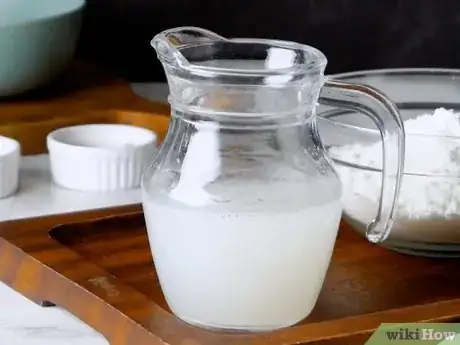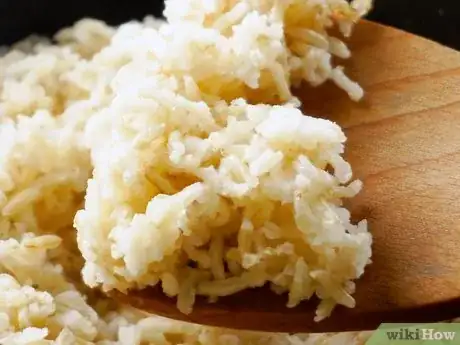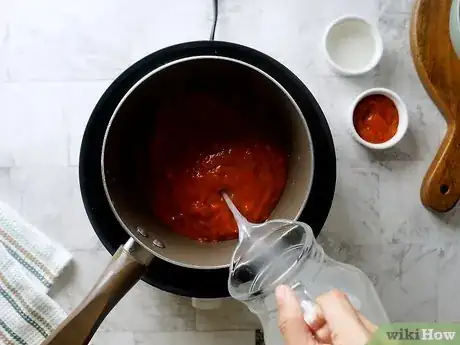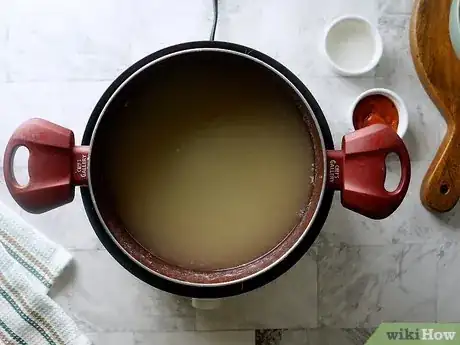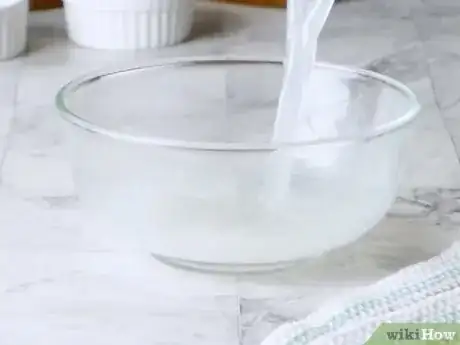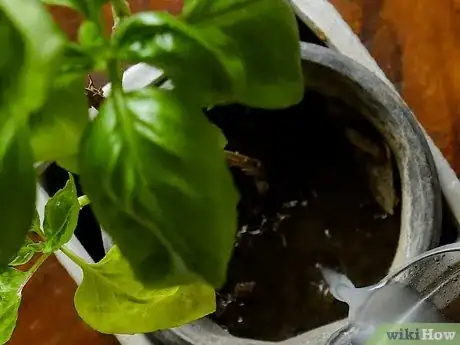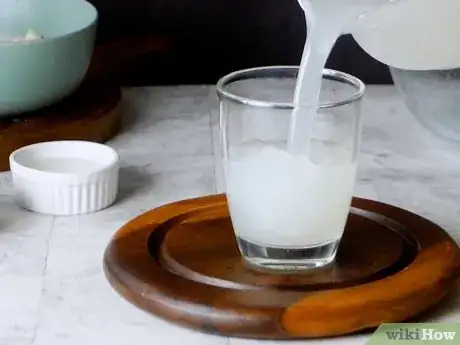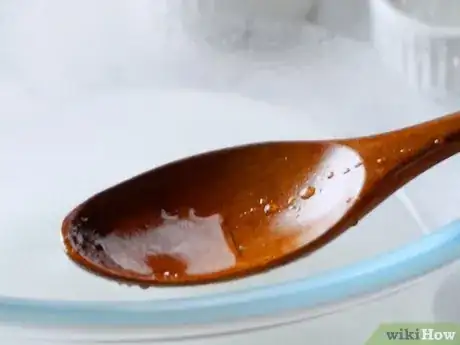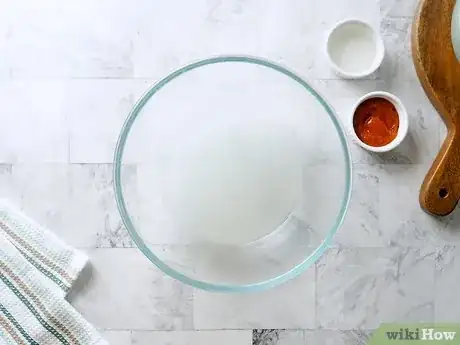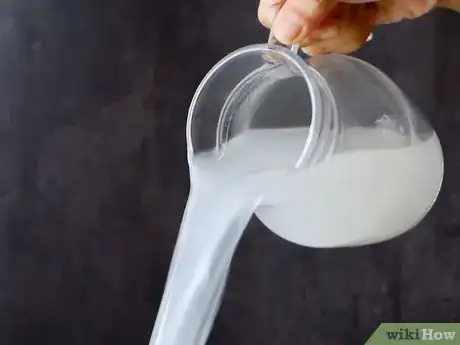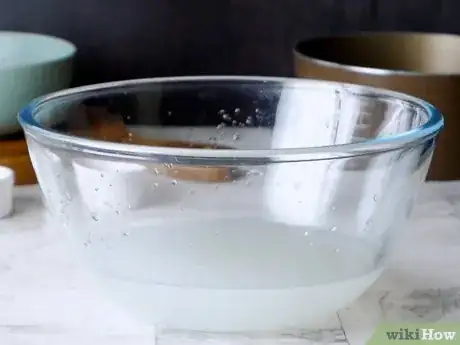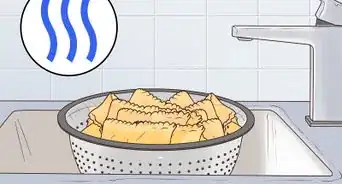This article was co-authored by Sasha Reyes. Chef Sasha Reyes is the Executive Chef and Owner of Artisan Personal Chefs. With over 20 years of food industry experience, she specializes in private dinner parties, custom sports nutrition plans for professional athletes, and cooking lessons. Chef Reyes graduated from Arizona Culinary Institute in 2011 with a degree in Culinary Arts, Baking, and Restaurant Management.
This article has been viewed 55,037 times.
If you're trying to conserve water, you may want to do something with leftover pasta water rather than pour it down the drain. Pasta water can be used as broth in soup or an ingredient in bread. You can also use pasta water to drink or water your plants. However, you can only reuse pasta water for so long before it becomes too starchy. Make sure to discard pasta water that is very cloudy.
Steps
Reusing Pasta Water for Cooking
-
1Use pasta water for bread. As pasta water retains some starch and flavor from the pasta, it can be used in bread. If your bread recipe calls for water, save your pasta water in the fridge. Later, when you make bread, you can use the leftover pasta water instead of tap water.[1]
-
2Cook rice in leftover pasta water. Pasta water can add some flavor and richness to rice. Instead of boiling rice in tap water, use your leftover pasta water in rice.[2]
- If you're making a big meal, it can be easy to simply transfer your pasta water to another pot when you're done cooking. You can then bring that water to a boil and use it to cook rice.
Advertisement -
3Loosen thick sauce with pasta water. If you're making your own pasta sauce, you don't have to let your pasta water go to waste. If your sauce is a little too thick, throw in a splash of pasta water. This will lighten up your sauce, making it easier to spread, while adding some flavor from the noodles.[3]
-
4Use the water as broth in soups. Pasta water will have some starch and flavor from the pasta. If you also boiled some vegetables with the pasta, it will have that flavor as well. Therefore, it can be great to use as a broth in soups. Instead of using vegetable or chicken stock, substitute these ingredients with leftover pasta water.[4]
- This is especially good if you're watching your sodium intake. Soup broths can be very high in sodium. Replacing them with leftover pasta water will greatly cut down on your sodium intake.[5]
Using Pasta Water for Other Means
-
1Add the water to a compost bin. If you're composting already, a small amount of leftover pasta water can be added to your compost bin. You can simply drain your pasta over the compost bin, recycling the water and not creating excess waste.[6]
-
2Water your plants with pasta water. Remove pasta water and allow it to cool. Then, use it to water your plants. This prevents the water from going to waste.
- Wait until the water has cooled. Boiling water can kill plants.[7]
- Some people notice pasta water has an adverse effect on their plans, so stop using pasta water if you notice your plants wilting.
-
3Try drinking leftover pasta water. If you've also boiled vegetables with leftover pasta water, there may be trace amount of vitamins and minerals in the water. There may also be vitamins and minerals if you used something like enriched noodles. You can cool off pasta water and then drink it later on.[8]
Taking Precautions
-
1Test the flavor before saving pasta water. Before adding pasta water to something like bread or soup, allow it to cool enough that you can taste it. You may find the flavor of the water would not go well with your recipe. In this case, try to use the pasta water for something other than cooking.[9]
-
2Avoid using pasta water for cleaning. Pasta water should not be used for cleaning purposes. It is very starchy and, if you boiled something like vegetables in the water, it may be discolored. This can stain surfaces, so do not use pasta water to clean.[10]
-
3Discard the water when it gets too cloudy. Pasta water can only be re-used so many times. If you cook pasta in the same water twice, it will become increasingly starchy as it draws more water from the pasta. Eventually, it will become too thick to use. If you reuse the same water to boil pasta over and over again, discard the water after it gets thick and cloudy.[11]
-
4Finished.
Expert Interview
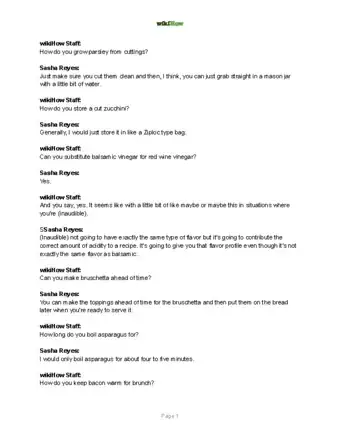
Thanks for reading our article! If you'd like to learn more about cooking tips, check out our in-depth interview with Sasha Reyes.
References
- ↑ https://www.washingtonpost.com/lifestyle/food/2013/01/16/b05bfab4-5fab-11e2-9940-6fc488f3fecd_story.html
- ↑ https://www.washingtonpost.com/lifestyle/food/2013/01/16/b05bfab4-5fab-11e2-9940-6fc488f3fecd_story.html
- ↑ https://www.washingtonpost.com/lifestyle/food/2013/01/16/b05bfab4-5fab-11e2-9940-6fc488f3fecd_story.html
- ↑ http://www.recyclethis.co.uk/20090320/how-can-i-reuse-or-recycle-water-from-boiling-veg-or-pasta-etc
- ↑ https://www.ucsfhealth.org/education/guidelines_for_a_low_sodium_diet/
- ↑ http://www.recyclethis.co.uk/20090320/how-can-i-reuse-or-recycle-water-from-boiling-veg-or-pasta-etc
- ↑ http://www.recyclethis.co.uk/20090320/how-can-i-reuse-or-recycle-water-from-boiling-veg-or-pasta-etc
- ↑ http://www.recyclethis.co.uk/20090320/how-can-i-reuse-or-recycle-water-from-boiling-veg-or-pasta-etc
- ↑ https://www.washingtonpost.com/lifestyle/food/2013/01/16/b05bfab4-5fab-11e2-9940-6fc488f3fecd_story.html
About This Article
If you don’t want all that water to go to waste after cooking up a batch of noodles, save it to use for other cooking projects. For example, try incorporating pasta water into your favorite bread recipe or using it as a base for a broth. You can also cook rice in pasta water to add a little extra richness to its flavor. Pasta water is also great for thinning out thick sauces and adding a boost of flavor. If you’d rather not incorporate pasta water into your cooking, try adding a little to your compost bin or even watering your plants with it. However, be careful using it on your plants. If there’s a lot of salt in the water, it could harm them. If you don’t mind the flavor, you can even drink leftover pasta water once it’s cooled down. Water that’s been used to cook enriched or vegetable-based pasta contains added nutrients.
